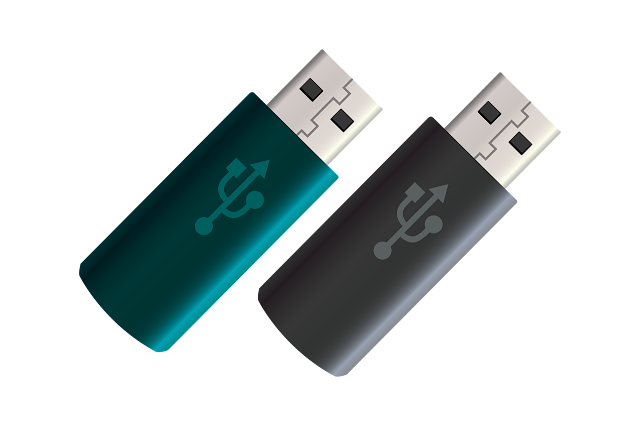Some Open Source Software to Create Bootable Live USB
Bootable is a facility that we often find on an operating system. For example, we create a bootable linux distro on Flashdisk. This is a bootable example. Bootable is not only made on a flashdisk, but on all storage media in which there is an operating system. Lots of software that you can use to create a bootable on storage media.
 |
| Image by Pixabay |
Some open source software that you can use to create a bootable, Live USB:
1. UNetbootin
I have known UNetbooting since I was using Ubuntu 12.04. This software can be used for Linux, Mac, and Windows. This software is very easy to use. To make a bootable Linux, we can choose the distribution on the distribution menu provided.
Or, if you have an .iso file that you want to make as bootable on a flashdisk, you can import the .iso file into this software and then make it bootable. I also use this software, when replacing the distro to Xubuntu 18.04 bit and running smoothly.
2. Rufus
This software is a favorite of Windows users in making a bootable of Windows, Linux Distro, etc. On the official website, they wrote that Rufus works faster than Unetbootin (there are speed comparison data when using Rufus and other bootable software).
Unfortunately, this open source software only focuses on developing for Windows. I used this software when I was using Windows 7. Rufus is easy to use like Unetbootin. For those of you who are Windows users, I recommend Rufus for bootable setup on Windows.
3. balenaEtcher
Bootable software that you can use besides Rufus and UNetbootin. balenaEtcher is a crossplatform, so you can use it on Windows, Mac, and Linux like UNetbootin. This is also easy to use. balenaEtcher has a more modern appearance than UNetbootin but has a fairly large file size.
Besides the software that I wrote above, there are several other bootable software such as YUMI (Your Universal Multiboot Installer), Universal USB Installer, dd, and others. The 3 software that I wrote above are favorite applications from users based on the AlternativesTo.
Benefits of bootable, live usb, live CD, etc:
- Installing the operating system, in this case we can install Linux distributions on the computer.
- Can be used to try out the features of the Linux distro that we will install before starting the installation by using the Live Linux feature, which is almost every Linux distribution currently has.
- Recovery. When a Linux distro that we use has an error, there are usually some errors that require recovery using Live USB, Live CD.
Hopefully useful, CMIIW, and ENJOY!.
